Disclosure: This article contains affiliate links. We may earn a commission from purchases at no extra cost to you, which helps our travel content.
As a pediatrician for three decades, I've mastered the art of diagnosing problems with limited information. Turns out, this skill translates beautifully to budget travel! After losing my husband five years ago, I've redirected my energy toward exploring the world on a sensible budget. Japan had always been my dream destination – a place where ancient tradition and futuristic innovation coexist in perfect harmony. But like many, I assumed Tokyo was financially out of reach. What I discovered instead was a city that, when approached with the right strategy, offers incredible experiences without requiring financial gymnastics. My recent fall adventure proved that Tokyo can be enjoyed for under $50 a day, and I'm thrilled to share my prescription for affordable exploration with you students and budget travelers. Consider this your comprehensive treatment plan for experiencing Tokyo without the financial side effects!
Budget Accommodation: The Foundation of Affordable Tokyo
Just as a good night's sleep is essential for a child's development, affordable accommodation is the backbone of budget travel in Tokyo. During my week-long stay, I opted for a capsule hotel in Asakusa for three nights and a modest hostel in Shinjuku for four. The capsule experience at Nine Hours Asakusa was surprisingly comfortable at ¥3,000 ($20) per night – think of it as a cozy medical pod designed for efficient rest rather than a claustrophobic box. The shared bathrooms were impeccably clean, and the sleeping quarters quieter than many hospital on-call rooms I've experienced!
For the remainder of my trip, I stayed at UNPLAN Shinjuku, a modern hostel with female-only dorm options for around ¥3,500 ($24) per night. The communal kitchen became my laboratory for budget meal preparation, and I met fellow travelers from Germany, Australia, and South Korea who shared valuable money-saving tips.
If you're planning a longer stay, consider Airbnb weekly rentals in residential areas like Nakano or Koenji. Many offer weekly discounts that bring costs down to $25-30 per night. Just as we pediatricians look for underlying causes rather than just symptoms, look beyond the tourist districts for accommodation to find the real savings.

💡 Pro Tips
- Book capsule hotels and hostels 2-3 months in advance for best rates
- Choose accommodations with kitchen access to save on meal costs
- Look for weekly stay discounts of 15-20% for longer visits
Navigating Tokyo: Transportation on a Budget
Transportation in Tokyo functions much like a body's circulatory system – complex but remarkably efficient once you understand its flow. The key to affordable movement is the Suica or Pasmo card, which I loaded with ¥5,000 (about $33) that lasted nearly my entire week with careful planning.
Instead of purchasing the tourist-oriented Tokyo Subway Pass, I analyzed my daily itineraries like I would a treatment plan – grouping attractions by neighborhood to minimize transit costs. On average, I spent just ¥800-1,000 ($5-7) daily on transportation by implementing this neighborhood-focused approach.
Walking became my primary mode of exploration within districts. My trusty pedometer watch recorded over 20,000 steps most days! This not only saved money but allowed me to discover charming side streets and local spots I would have missed otherwise. My favorite discovery was a tiny shrine nestled between modern buildings in Shibuya that wasn't in any guidebook.
For longer journeys, the JR Yamanote Line became my best friend – this loop line connects most major Tokyo districts, and if you're strategic, you can use it to reach many attractions. Remember that Tokyo's transportation system operates like a hospital – it runs with remarkable precision, so familiarize yourself with closing times (usually around midnight) to avoid costly late-night taxis.
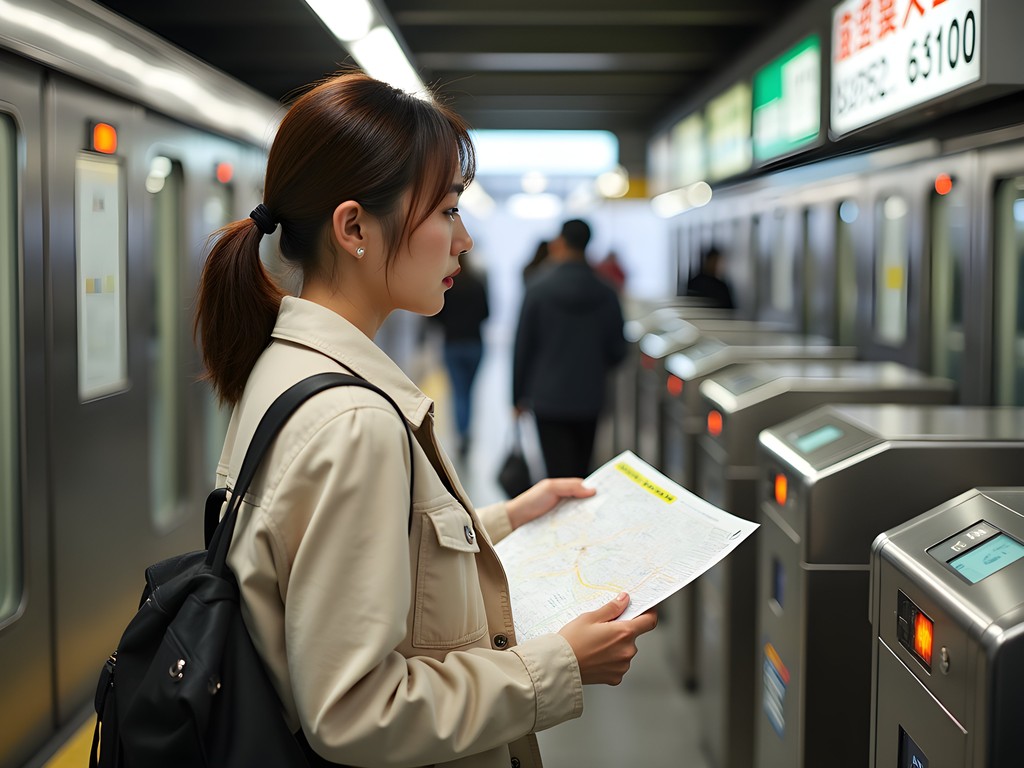
💡 Pro Tips
- Group sightseeing by neighborhood to minimize transportation costs
- Use the JR Yamanote Line whenever possible if you have a Japan Rail Pass
- Download the Japan Transit Planner app for easy route planning
Free and Nearly-Free Attractions: Tokyo's Best Budget Experiences
Just as the best medicine isn't always the most expensive, Tokyo's most memorable experiences often come with the smallest price tags. My week was filled with incredible free and nearly-free attractions that provided deep cultural immersion without financial strain.
The Imperial Palace East Gardens became my morning sanctuary – completely free and spectacularly maintained. I visited twice during my stay, once joining a free volunteer-guided tour where a retired English teacher named Hiroshi shared fascinating historical insights no guidebook could provide.
Meiji Shrine offered another cost-free spiritual experience, especially magical in early morning when I observed a traditional Shinto wedding procession. The surrounding Yoyogi Park transitions into a vibrant performance space on Sundays, where I watched everything from rockabilly dancers to cosplay enthusiasts.
For panoramic city views, I skipped the expensive Tokyo Skytree and instead visited the Tokyo Metropolitan Government Building's free observation deck in Shinjuku. The sunset views rivaled any I've paid for elsewhere, with Mount Fuji visible on clear days.
Sensoji Temple in Asakusa charges nothing to explore its grounds, though I recommend arriving by 8am to experience its atmospheric beauty before crowds arrive. The surrounding Nakamise Shopping Street costs nothing to browse, and I enjoyed sampling free food tastings from vendors eager to share their specialties.
For art enthusiasts, many Tokyo museums offer free admission days – I timed my visit to the National Museum of Modern Art on their free-entry first Sunday and saved ¥1,000. Before traveling, I recommend downloading the Tokyo Free Guide app which lists current free events and museum days – it's like having a budget travel specialist in your pocket!

💡 Pro Tips
- Visit popular shrines and temples early morning (before 8am) or evening (after 5pm) to avoid crowds
- Check museum websites for free admission days and special evening hours
- Look for free walking tours led by local volunteer guides
Eating Well Without Breaking the Bank
Nutrition is fundamental to health, and in Tokyo, eating well doesn't require financial malpractice! My daily food budget averaged ¥2,500 ($17), which included three satisfying meals and occasional snacks. The secret was balancing convenience store finds with strategic restaurant visits.
Japanese convenience stores (konbini) became my nutritional allies. Each morning began with onigiri (rice balls) and fresh fruit from 7-Eleven or Lawson, costing around ¥500 ($3.50). These stores also offer surprisingly good coffee at a fraction of café prices. For lunch, I often grabbed bento boxes from supermarkets like Life or Aeon after 1pm, when many are discounted by 30-50%.
For dinner experiences without the expense, I discovered the wonder of standing sushi restaurants. At Uogashi Nihon-Ichi in Shibuya, I enjoyed quality nigiri for ¥100-300 per piece – allowing me to sample premium fish without the premium price tag. Ramen shops provided another economical dinner option, with hearty bowls available for ¥800-1,000 ($5.50-7).
University areas like Waseda and Takadanobaba became my go-to districts for student-friendly pricing. I found set meals (teishoku) for ¥650 ($4.50) that included main dishes, rice, miso soup, and pickles – a perfectly balanced meal any nutritionist would approve of!
To stay hydrated without waste or expense, I brought my trusty insulated water bottle and refilled at public water fountains throughout the city. Tokyo tap water is perfectly safe, saving both money and plastic waste.
One splurge I recommend: set aside ¥2,000 ($14) for at least one conveyor belt sushi experience. At Genki Sushi in Shibuya, I ordered via tablet and watched my selections zoom to my seat on a miniature bullet train – a quintessentially Japanese experience worth every yen!
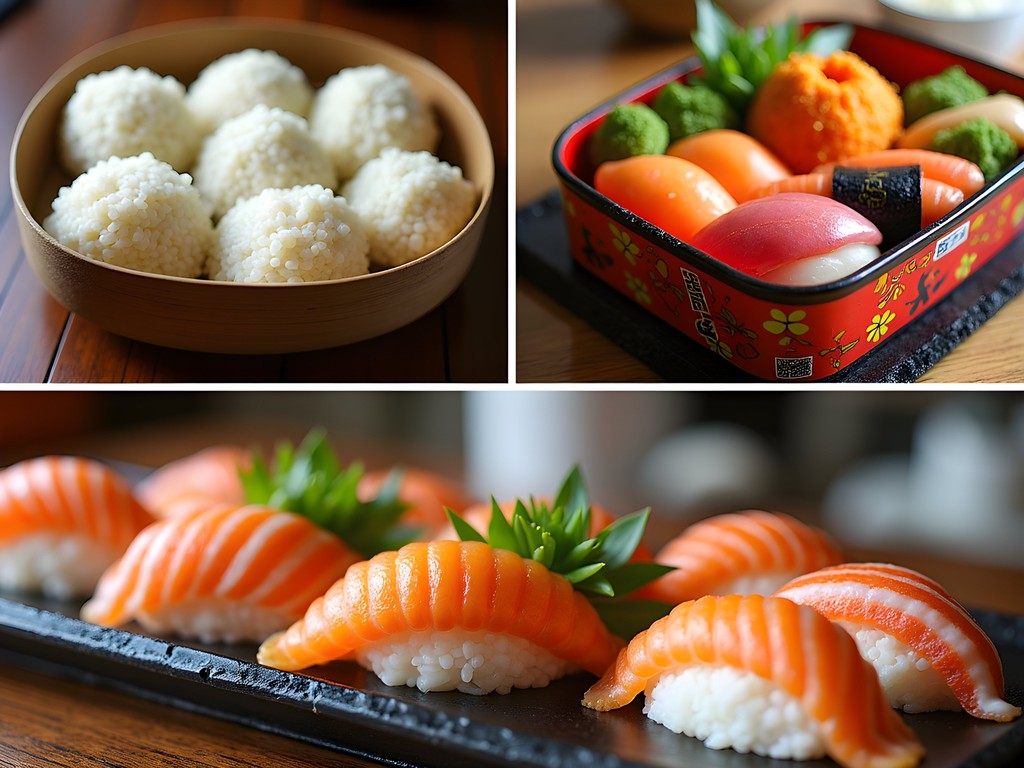
💡 Pro Tips
- Visit department store food halls (depachika) 30 minutes before closing for discounted fresh foods
- Look for restaurants displaying ticket machines outside - they're typically more affordable
- Try standing restaurants (tachigui) for quality food at lower prices
Cultural Immersion on a Budget
As a pediatrician, I've always believed that understanding cultural context is crucial for effective care. Similarly, truly experiencing Tokyo requires cultural immersion beyond tourist attractions. Fortunately, this deeper connection doesn't require deep pockets!
Public parks became my windows into everyday Japanese life. Ueno Park offered free people-watching opportunities where I observed everything from elderly tai chi groups to young families enjoying weekend picnics. Yoyogi Park's Sunday gatherings showcased Tokyo's diverse subcultures – from cosplayers to traditional musicians – all for the price of nothing but attention.
Local festivals (matsuri) offer authentic cultural experiences at minimal cost. I timed my visit to coincide with the Kanda Matsuri, one of Tokyo's major Shinto festivals held in odd-numbered years. The spectacle of ornate mikoshi (portable shrines) carried through streets by chanting locals provided more cultural insight than any paid tour.
For rainy days, I discovered that many Tokyo libraries have English-language sections and free cultural programming. The Tokyo Metropolitan Central Library hosted a free washi paper-making workshop during my stay, where I created beautiful souvenirs while chatting with locals eager to practice English.
Temple and shrine visits took on new meaning when I participated in their rituals rather than merely photographing them. At Sensoji Temple, I spent ¥100 on omikuji (fortune papers) and learned from watching locals how to properly tie my fortune if unfavorable or keep it if blessed with good luck.
To prepare for my cultural immersion, I invested in a pocket Japanese phrasebook before my trip. Those few basic phrases opened doors to interactions that money simply couldn't buy – from an impromptu calligraphy lesson from an elderly shopkeeper to being invited to join a group of seniors practicing English in Hibiya Park.
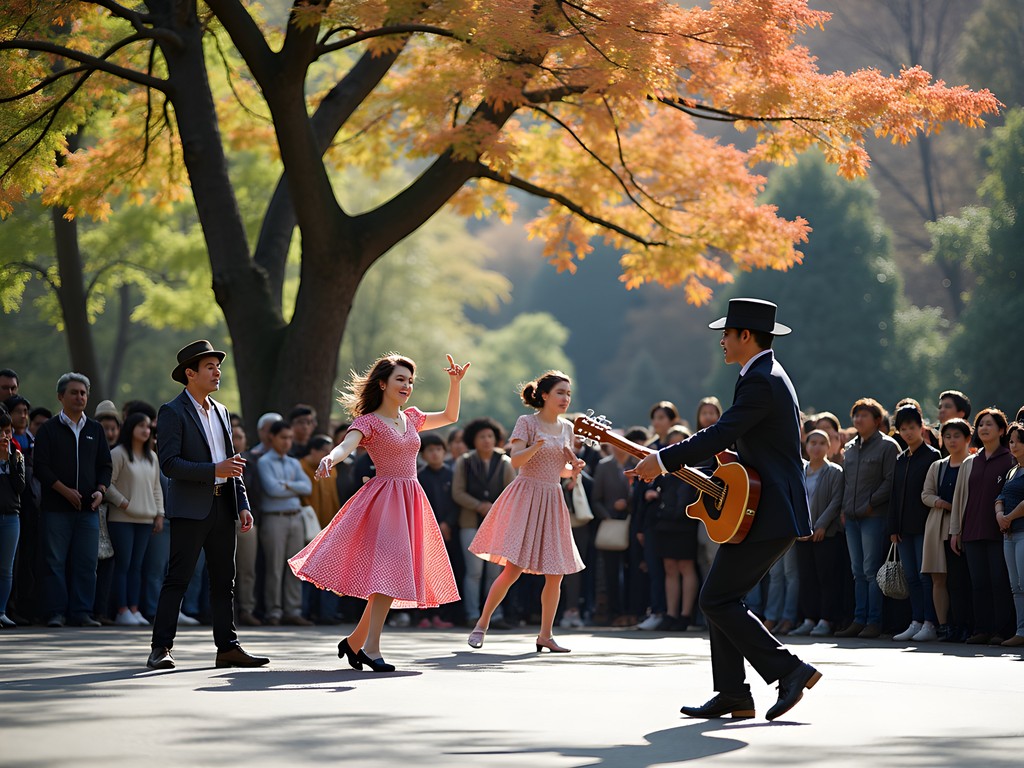
💡 Pro Tips
- Check event listings at the Tokyo Tourist Information Centers for free cultural demonstrations
- Visit university areas like Waseda or Hongō for student performances and art exhibitions
- Download the Japan National Tourism Organization app for up-to-date festival information
Final Thoughts
As my week in Tokyo demonstrated, this magnificent metropolis – like a complex medical case – simply requires the right approach to make it accessible on a modest budget. By applying strategic planning to accommodations, embracing public transportation, seeking out free attractions, eating like a local, and immersing yourself in authentic cultural experiences, you can experience Tokyo's magic for under $50 daily. The prescription is clear: don't let financial constraints prevent you from experiencing one of the world's most fascinating cities. Tokyo taught me that the most meaningful travel experiences often come not from extravagant spending but from curious exploration and genuine connection. So pack your sense of adventure (and perhaps a good phrasebook), and discover how the perfect balance of planning and spontaneity can make Tokyo not just affordable, but unforgettable. Your budget-friendly Tokyo adventure awaits – and I promise, the side effects will only include amazing memories and a deeper appreciation for Japanese culture!
✨ Key Takeaways
- Stay in capsule hotels or hostels with kitchen access to keep accommodation costs low
- Group sightseeing by neighborhood to minimize transportation expenses
- Balance convenience store meals with strategic restaurant visits for affordable dining
- Seek out free cultural experiences like parks, temples, and local festivals
- Travel during shoulder season (fall/spring) for better rates and pleasant weather
📋 Practical Information
Best Time to Visit
Fall (September-November) or Spring (March-May)
Budget Estimate
$45-50 per day excluding flights
Recommended Duration
5-7 days
Difficulty Level
Easy


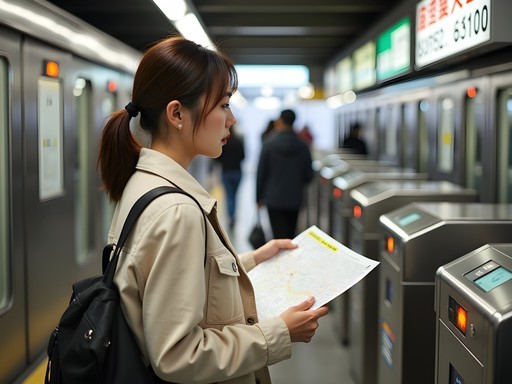

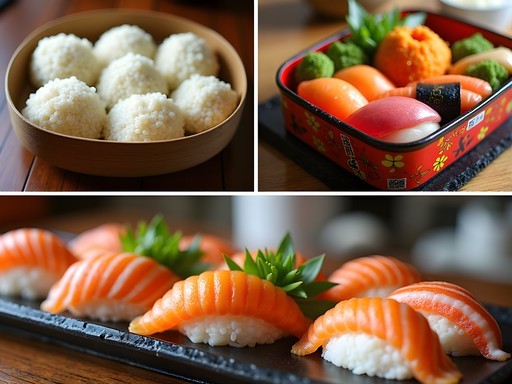



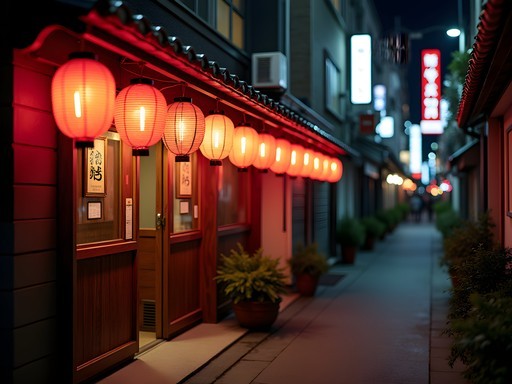


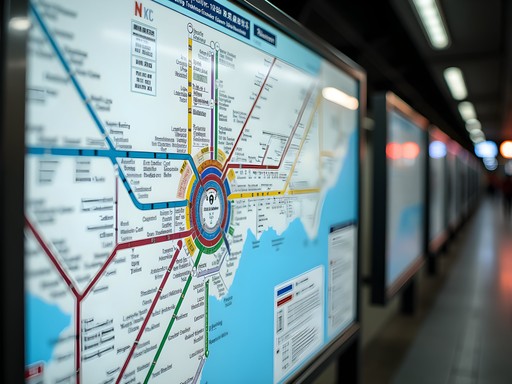
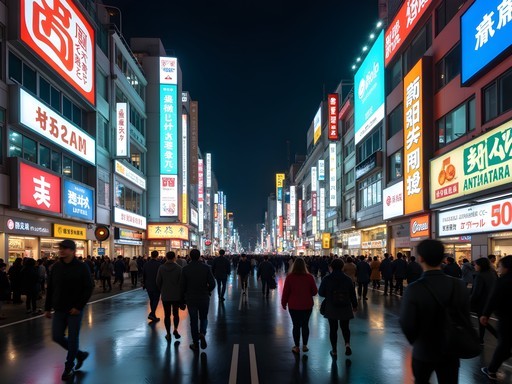
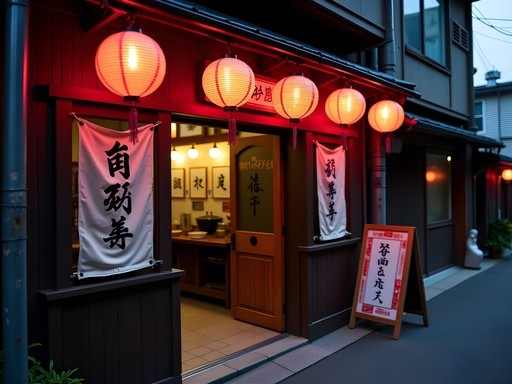

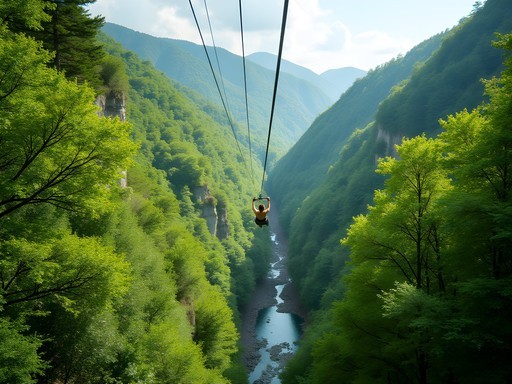
Comments
Jennifer Thomas
Violet, your post couldn't have come at a better time! I'm planning my Tokyo trip for next spring and budget is my top concern. I love how you approached this methodically (the doctor in you shows!). I did a budget Tokyo trip last year and would add a few things: 1) The 100 yen shops are AMAZING for souvenirs and snacks 2) Ueno Park has multiple free museums on certain days 3) The morning tuna auction at Toyosu Market is free and fascinating (just wake up early!). For accommodations, I found a great deal on a tiny Airbnb in Koenji - not as central but super affordable and a cool neighborhood with vintage shops. Can't wait to try your food recommendations - convenience store egg sandwiches are seriously underrated!
luckyseeker
Jennifer, is Koenji easy to get to from the main attractions? Considering staying there too!
Jennifer Thomas
Yes! It's on the JR Chuo Line - just about 15 mins to Shinjuku. Super convenient and way cheaper!
backpackbetty
Love this! Saving for my trip planning!
travelwithkids85
Your medical background shines through in how methodically you break down the costs! We're planning to take our kids (8 and 11) to Tokyo next year, and I was worried about the budget. Do you think your $50/day approach would work for a family? The free attractions section is gold - my kids would love the Ghibli clock and the fish market!
Violet Colombo
With kids, I'd budget a bit more - maybe $75-80/person/day. Children's meals are cheaper, and many attractions offer family discounts. The fish market would be perfect! Also check out Yoyogi Park on Sundays for free street performers - my grandkids loved that via video chat!
travelmood
That street food photo has me drooling! What exactly is that dish?
Violet Colombo
That's takoyaki - octopus balls! Only about $3-4 for a serving and so delicious. Don't miss them!
sunnyexplorer
Going to Tokyo next month! Did you use a Suica card for trains? Worth it?
Douglas Bradley
Not the author, but absolutely get a Suica card! It works on nearly all trains, buses, and even in many convenience stores. Saves time and slightly cheaper than buying individual tickets. You can load it as you go and check the balance easily.
sunnyexplorer
Thanks! Will definitely get one then. So excited!
Violet Colombo
Agree with Douglas! I used a Suica card my entire trip. One tip: if you're staying within Tokyo proper for most days, sometimes just walking between nearby neighborhoods can be both free and more interesting than taking the train for short hops!
Douglas Bradley
Violet, I appreciate how you've approached Tokyo from a truly budget-conscious perspective. Many guides claim to be "budget" but still recommend $100+ hotels! Your section on convenience store meals resonated with me - I lived on onigiri and egg sandwiches during my last Tokyo visit and actually enjoyed the experience as cultural immersion. One tip I'd add: many of the smaller temples outside the major tourist circuit are free and often more peaceful. Yanaka neighborhood has several worth visiting plus wonderful architecture. Did you find the language barrier challenging on such a tight budget?
Violet Colombo
Great point about Yanaka! I wish I'd had time to explore more of those hidden temples. The language barrier was manageable with Google Translate and basic Japanese phrases I learned. Most signs in the metro have English, and I found restaurant staff incredibly patient with my pointing and gesturing!
sunnyexplorer
Those convenience store egg sandwiches are LIFE! I still dream about them!
greenace623
This is exactly what I needed! I've been putting off visiting Tokyo because everyone says it's so expensive, but your breakdown makes it seem doable. The capsule hotel tip is genius - did you feel safe staying there as a solo traveler? I'm planning my first international trip and feeling nervous about accommodations.
Violet Colombo
Absolutely felt safe! The capsule hotels have separate floors for men and women, secure lockers for belongings, and most have 24-hour front desks. As a fellow solo traveler, I understand the concern, but Japan is one of the safest places I've traveled alone.
greenace623
That's so reassuring, thank you! Definitely adding Tokyo to my 2026 plans now!
nomadbackpacker
This is exactly what I needed! Bookmarking for my trip in January. Everyone told me Tokyo was impossible on a budget!
Savannah Walker
Violet, this resonated so much with me! I lost my dad last year and solo travel became my therapy too. Tokyo was actually my first solo destination! Your budget accommodation tips are gold - I stayed at a women-only hostel in Asakusa that was only $18/night and spotlessly clean. For anyone following this guide, I'd add visiting Shimokitazawa neighborhood for vintage shopping (you can browse for free!) and checking out the observation deck at the Tokyo Metropolitan Government Building instead of Tokyo Skytree - completely free and the views are incredible. I used my pocket translator constantly, especially at local food spots where no English was spoken. Worth every penny for authentic experiences!
luckyseeker
Going to Tokyo next month for the first time! Is the subway easy to figure out for non-Japanese speakers?
happyperson
Not the author but yes! Most signs are in English and there are color-coded lines. Get a Suica card first thing!
luckyseeker
Thanks for the tip! Will definitely get that card.
Venture X
Premium card with 2X miles, $300 travel credit, Priority Pass